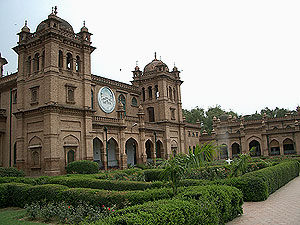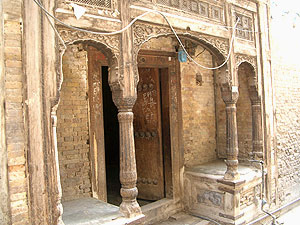Service & Area
Quick Links
Pathans
 The Pathans are a Caucasoid race, who emigrated from the Middle East during the first millennium B.C., popular tradition identifying them as the lost tribe of Israel who disappeared into the desert. As the story goes the race was founded in the seventh century by Kais, thirty seventh lineal descendant of Saul of Israel who lived near Ghur in Afghanistan . After being converted by a missionary to Islam Kais moved to Kandahar where the new clan took its language Pashtu and the growing tribe spread north and east into the mountains. The three great branches of the clan which live in north Pakistan and Afghanistan trace their origin to a son of Kais. The Sarbani Pathans, which include the Yousefzai, Shinwari, Mohmands , Muhammedzai , Durrani, Ghori Khel and Khaikai khel, claim descend from Sarban. The Ghilzai Pathans, among which are the Suliman Khel and Aka Khel are descendants of Baitan. The Ghurghust Pathans, such as the Afridis, Khattaks, Wazir, Mashuds, Turis, Jajis ,Daurs, and Bangash are the descendants of Ghurghust.
The Pathans are a Caucasoid race, who emigrated from the Middle East during the first millennium B.C., popular tradition identifying them as the lost tribe of Israel who disappeared into the desert. As the story goes the race was founded in the seventh century by Kais, thirty seventh lineal descendant of Saul of Israel who lived near Ghur in Afghanistan . After being converted by a missionary to Islam Kais moved to Kandahar where the new clan took its language Pashtu and the growing tribe spread north and east into the mountains. The three great branches of the clan which live in north Pakistan and Afghanistan trace their origin to a son of Kais. The Sarbani Pathans, which include the Yousefzai, Shinwari, Mohmands , Muhammedzai , Durrani, Ghori Khel and Khaikai khel, claim descend from Sarban. The Ghilzai Pathans, among which are the Suliman Khel and Aka Khel are descendants of Baitan. The Ghurghust Pathans, such as the Afridis, Khattaks, Wazir, Mashuds, Turis, Jajis ,Daurs, and Bangash are the descendants of Ghurghust.
 Physically, the Pathan are taller and stronger than the Negroid races to the south, and slimmer and more hirsute than the Mongoloids to the north . The Pathans are a tough, proud and fiercely independent people who call no man master. The Pathans occupy a vast territory, follow a wide variety of callings, and are subdivided into numerous small and semi-independent groups, like the old Scottish clans.
Physically, the Pathan are taller and stronger than the Negroid races to the south, and slimmer and more hirsute than the Mongoloids to the north . The Pathans are a tough, proud and fiercely independent people who call no man master. The Pathans occupy a vast territory, follow a wide variety of callings, and are subdivided into numerous small and semi-independent groups, like the old Scottish clans.
The Pathan is an individualist whose relations with others are governed by a code of custom and honour know as “ Pakhtunwali “ the way ,of life for a Pathan .  Paktunwali promulgates three basic laws: the law of vengeance, which insists on retribution for every wrong no matter how slight done to family, clan or tribe; the law of hospitality, which must be extended to any who seek it, invited or uninvited , Pathan or foreigner, Muslim or unbeliever; and the law of sanctuary ‘Nanwatai ‘which must be given to all who ask for it, even an enemy. The Pathans adherence to this code in the long-term binds them together, in the short-term it can have just the opposite effect. In war the Pathan generally obeyed approved leaders of his own tribe, in peace it was his pride to obey no one.
Paktunwali promulgates three basic laws: the law of vengeance, which insists on retribution for every wrong no matter how slight done to family, clan or tribe; the law of hospitality, which must be extended to any who seek it, invited or uninvited , Pathan or foreigner, Muslim or unbeliever; and the law of sanctuary ‘Nanwatai ‘which must be given to all who ask for it, even an enemy. The Pathans adherence to this code in the long-term binds them together, in the short-term it can have just the opposite effect. In war the Pathan generally obeyed approved leaders of his own tribe, in peace it was his pride to obey no one.
